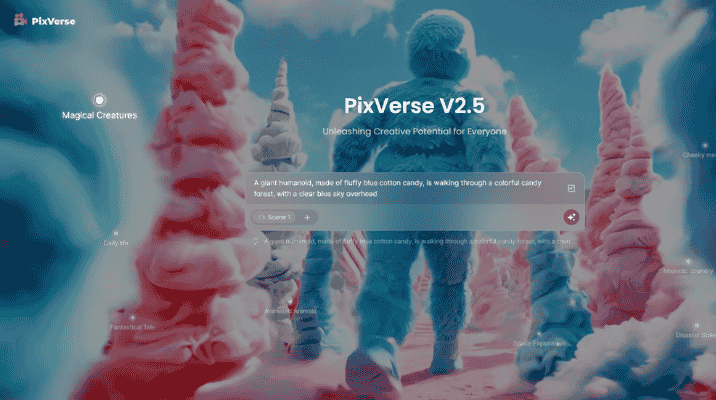Best AI Photo and Image Generators in September 2024
Sep 16, 2024
The Research Topics Generator helps students and academics find personalized, AI-powered research ideas, tailored to their interests and academic goals across various fields.
Visit WebsiteThe Research Topics Generator is an AI-powered tool designed to help students, researchers, and academics find personalized and relevant research topics. By analyzing your interests, past projects, and academic goals, this tool generates ideas tailored to your needs, making it easier to identify exciting, impactful topics for your next research project or paper. Whether you're a student struggling to find a topic or an experienced researcher seeking new inspiration, the Research Topics Generator offers suggestions to spark creativity and innovation.
Using the Research Topics Generator is simple:
The tool is user-friendly and designed to help anyone, from students to seasoned researchers, identify topics that align with their academic journey.
The tool uses AI technology to generate research topics based on your interests, making it highly personalized and relevant to your academic focus.
The Research Topics Generator provides engaging and current research ideas that can inspire students and researchers to pursue impactful work.
This feature helps you discover unexplored areas in your field, allowing you to develop original research that contributes to the academic community.
The tool is suitable for generating topics across various disciplines, from the humanities to STEM fields, catering to diverse academic needs.
For students looking to find topics that align with their personal interests or coursework requirements, the Research Topics Generator can provide inspiration and clarity.
For experienced researchers, the tool offers a way to explore new ideas and discover gaps in their field, allowing for more innovative research.
The tool can assist professors and academic advisors in guiding students toward relevant and engaging research topics tailored to their academic strengths.
Collaborative research teams can use the tool to generate a range of ideas that are relevant to their collective goals and areas of expertise.
Users of the Research Topics Generator praise its ability to produce unique and relevant suggestions that save time and effort in the topic selection process. Students appreciate its ease of use, while academics highlight its ability to identify gaps in existing research. Overall, the tool has been well-received as a helpful assistant in sparking new research ideas and ensuring relevance to current academic discussions.
The Research Topics Generator offers a range of pricing plans to accommodate different user needs:
Each plan ensures access to the core features while offering flexibility in pricing depending on individual or institutional requirements.
The tool analyzes your academic interests, previous projects, and specified fields of study using AI technology to generate personalized research topic ideas that are relevant and current.
Yes, the Research Topics Generator covers a wide range of academic disciplines, allowing users to generate research topics in areas ranging from social sciences to technology and engineering.
The suggestions are highly personalized, based on the input provided by the user. The more detailed your preferences and interests, the more relevant the research topics will be.
Absolutely. The Research Topics Generator is designed to assist both students who need help getting started and experienced researchers looking for fresh perspectives and unexplored areas.
Yes, you can use the tool as often as you'd like to generate new ideas, ensuring a constant source of inspiration for your research.
While Grammarly is mainly a writing assistant, it offers a Research tool that helps you organize ideas and find relevant sources for topic development.
Scopus is a comprehensive research database that helps researchers explore published work and identify gaps for potential research topics.
Google Scholar provides access to scholarly articles, allowing you to explore different research areas and identify trends that could inform your topic selection.
Mendeley offers a platform for organizing research papers and collaborating with peers, helping users discover research gaps and identify potential topics.
The Research Topics Generator simplifies the process of finding relevant research ideas by offering personalized suggestions. Whether you're a student, academic, or professor, this tool provides valuable insights that align with your academic interests and goals. By using its AI-powered technology, you can explore engaging topics and discover unexplored research areas with ease.

Sep 16, 2024

Sep 16, 2024

Sep 14, 2024